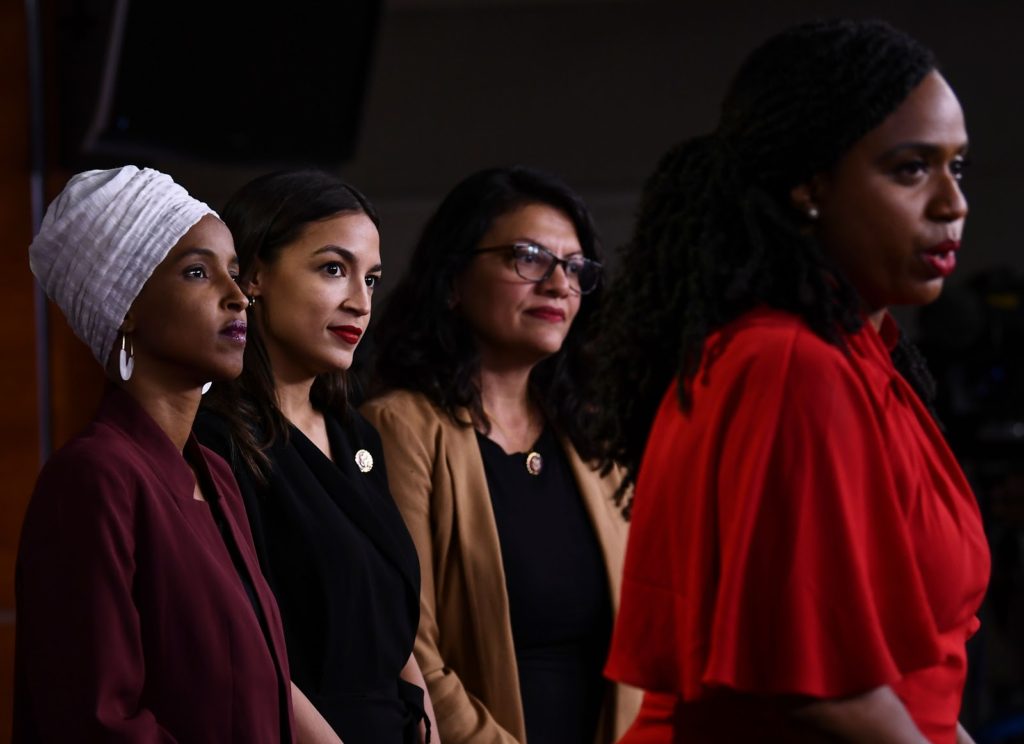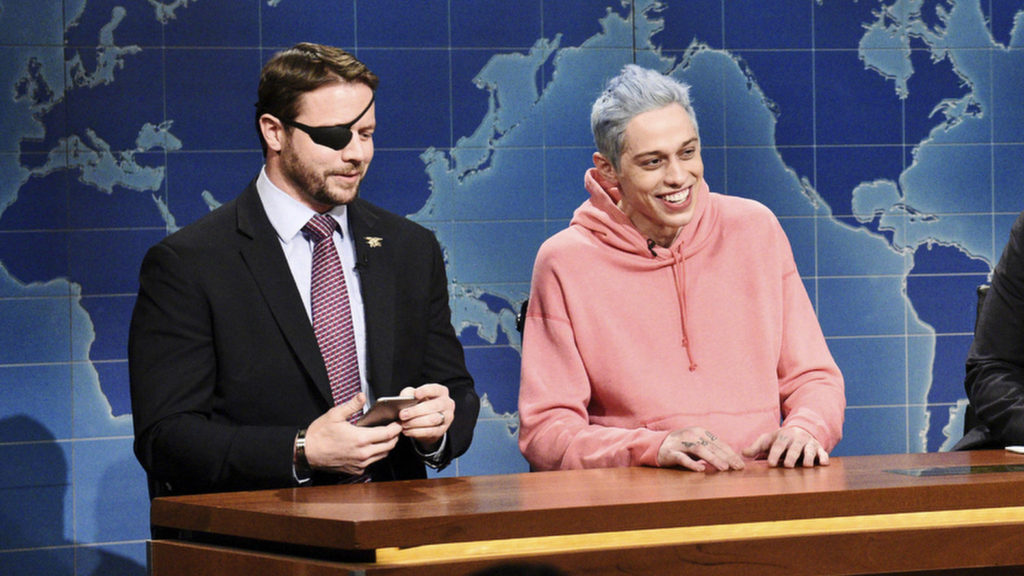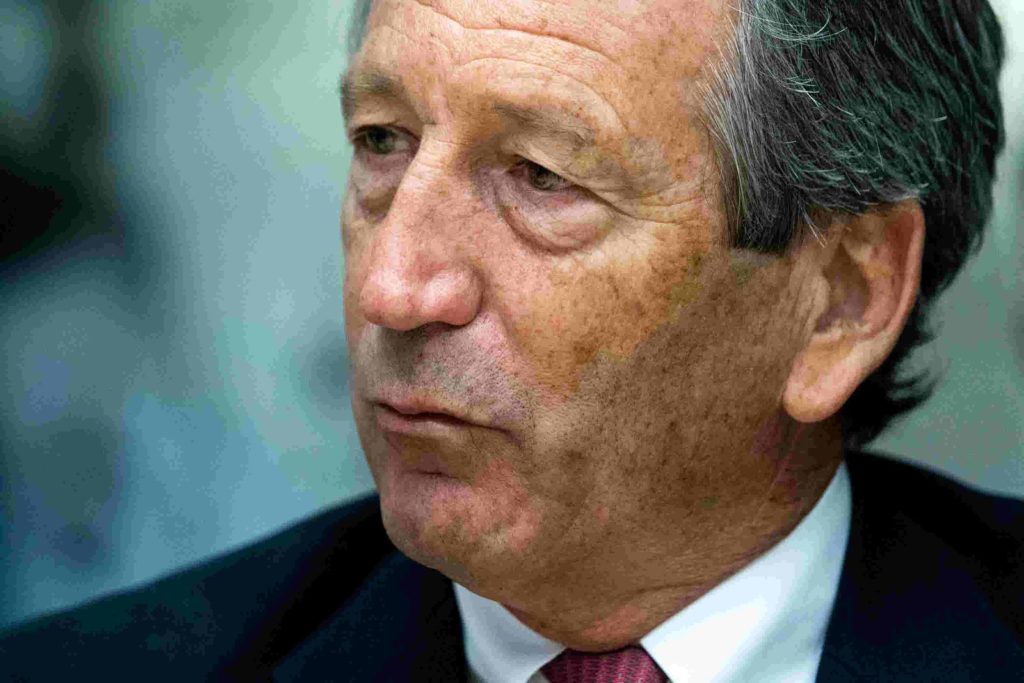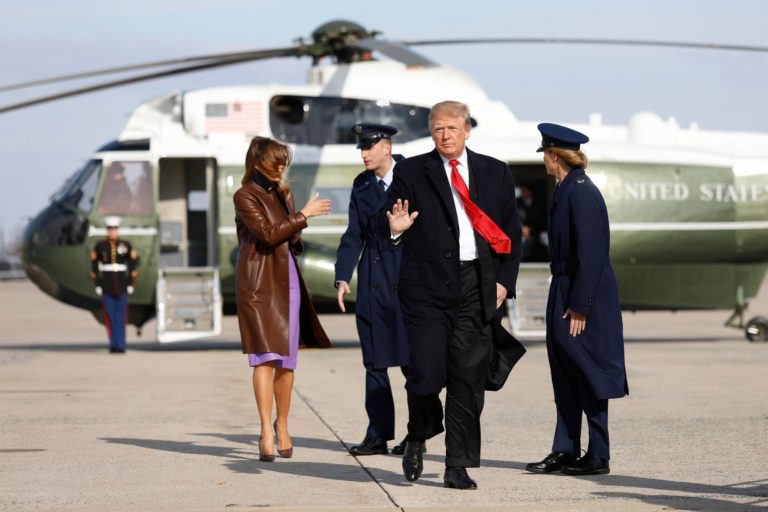
Donald Trump accepting the GOP’s presidential nomination at RNC Convention (Jul. 21, 2016 -Cleveland, OH)
Image courtesy of Alex Wong/Getty Images
It’s not rocket science. Donald Trump is damaging the Republican Party in the long run. Here’s why: (1) Centering the party around Trump is unsustainable, (2) he hurts down-ballot candidates, and (3) he threatens the party’s ability to adapt to changes in the political environment.
Firstly, a ‘Trump-centric’ party cannot survive in the long-term as a successful institution by its literal definition. Its very existence is chained to the very existence (and presence) of Donald Trump, who, I should mention, won’t stick around forever. In a party defined as such, when he goes down, the party goes down. He must allow for other Republicans to establish themselves as future leaders of the party by not sucking all the air out of the room.
Typically during elections, each major party sees some “rising stars” emerge (even if they burn out quickly thereafter). This was turned up to eleven for Democrats during the 2018 midterm elections—just look at Beto O’Rourke, Stacey Abrams, Alexandria Ocasio-Cortez and the rest of ‘The Squad’.

Members of ‘The Squad’ (L-R): Rep. Ilhan Omar (Minn.), Rep. Alexandria Ocasio-Cortez (N.Y.), Rep. Rashida Tlaib (Mich.), Rep. Ayanna Pressley (Mass.)
Image courtesy of The Washington Post
(As of now) I can see only a handful of figures on deck to replace Trump. I’ll keep this list brief, given that anyone’s fortunes could change on a dime between now and the 2024 primaries. My first pick would have to be Nikki Haley, long-seen as a future candidate. My reasoning: She’s young, highly qualified, and uncontroversial; and her list of enemies is small. In keeping her profile elevated, returning to the limelight soon after this post-U.N. break would only serve the former South Carolina governor well in building momentum. After her, I’d say Rep. Dan Crenshaw (TX). What’s not to like: He’s charming, sociable, bold, a former Navy SEAL, and (like Haley) he’s young; and he’s shown us that he can be extraordinarily forgiving and funny from his cameo with Pete Davidson on SNL. Despite these, securing the party’s presidential nomination is near-impossible for a mere House member. So, he will need to win a higher office before he can seize the party’s reins. And then there’s Sen. Mitt Romney (UT). I seesawed with including him, and for the reason that you may already know: He’s 72 (despite looking like he’s in his mid-to-late 50s). But, it isn’t impossible to think that he could run for president for a third time. The only reason a failed presidential nominee would re-enter elected office is if the ultimate prize is the presidency.

Rep. Dan Crenshaw (TX) on ‘SNL’ beside castmember Pete Davidson (Nov. 10, 2018)
Image courtesy of Will Heath/NBC/AP
Some might complain that I’ve excluded Marco Rubio and Ted Cruz (who will certainly run again), and those folks are misguided. Those two ruined their reputations in 2016 and the Trump crowd is antagonistic to ‘Little Marco’ and ‘Lyin’ Ted’.
I bet you that there will be a divisive succession crisis within the GOP following the departure of Trump from the White House (whenever that may be).
Secondly, Trump—like Obama—is neither helping to strengthen the state-level control of his party nor that of the House. After he’s out of office, the state-level and House G.O.P. will be weak, just like the state-level Democrats after Obama left office.
Trump guarantees this outcome for down-ballot G.O.P. by: Endorsing candidates loyal to him (often solely to spite a G.O.P. incumbent who’s not fully aboard the Trump train) but are too hard-right to win a general election; and by chaining the G.O.P. brand to himself (plus all the baggage he brings), thereby causing candidates down-ballot to suffer via presumed association with the divisive president. In this sense, the G.O.P. has essentially become Trump’s personal political machine—practically no Republican can survive without his seal of approval.
The evidence for all this stacks for miles. In 2018 the G.O.P. lost many longtime strongholds such as Southern California (Orange County, was hit hardest) and the entire Northeast in the House, as well as historically safe seats like Rep. Mia Love’s (UT), Rep. Mark Sanford’s (S.C.), and the Senate seat left vacant by retiring Sen. Jeff Flake in Arizona—a state traditionally as red as its sunsets. Pew Research Center backs this up, saying that, “Among the Republican House incumbents who lost their re-election campaigns, 23 of 30 were more moderate than the median Republican in the chamber.”
For the party’s survival, he must allow for ideological diversity and criticism of him from within the party. This will allow candidates to mold their politics to those of their constituencies.

Rep. Mark Sanford (S.C.)
Image courtesy of Kelsey Kremer/The Des Moines Register
The following statement is often (mistakenly) attributed to the famous scientist Charles Darwin:
“It is not the strongest of the species that survives, nor the most intelligent that survives. It is the one that is most adaptable to change.”
Adding to this, in natural selection when a species has genetic diversity, its chances of survival are enhanced. The same goes for the diversity of thought within a political party or a movement. So—building upon my previous point and bringing everything to a close—Trump has essentially purged the G.O.P. of disagreeing establishment and libertarian voices, plugging the holes with his loyal followers and defenders. The political winds can shift without warning, and the beliefs of Trump could become vastly unpopular, leading to diminishing successes at the ballot box (and then perhaps his movement’s ultimate extinction).
Douglas Braff
Douglas Braff is a copy editor at “In the Zeitgeist” and a senior at NYU who studies History and Creative Writing. Hailing from Long Island, New York, he hopes to potentially have a career in journalism, politics, or education. Doug has interned in the US Senate and at the program ‘Fox News Sunday’ with Chris Wallace. Outside of school, he loves to act, write creatively, listen to music, walk around the city, and visit art museums. Follow Doug on Twitter.



